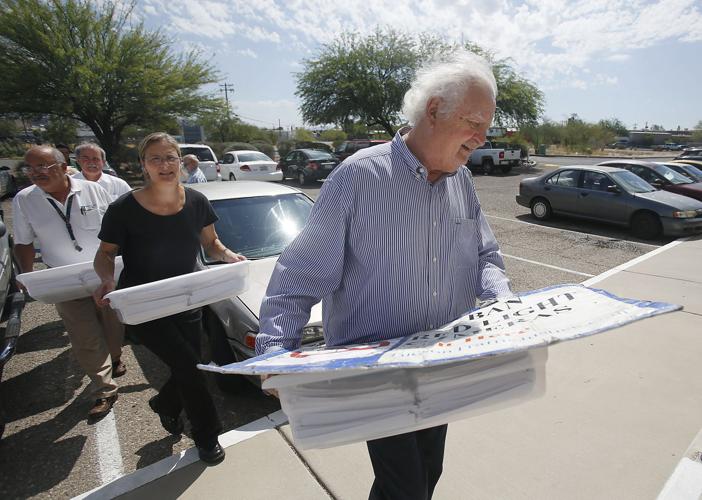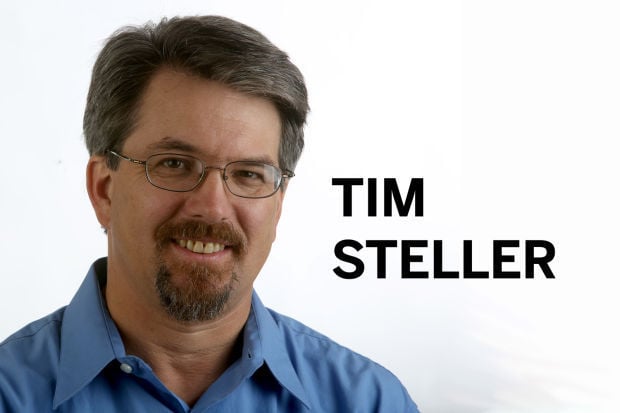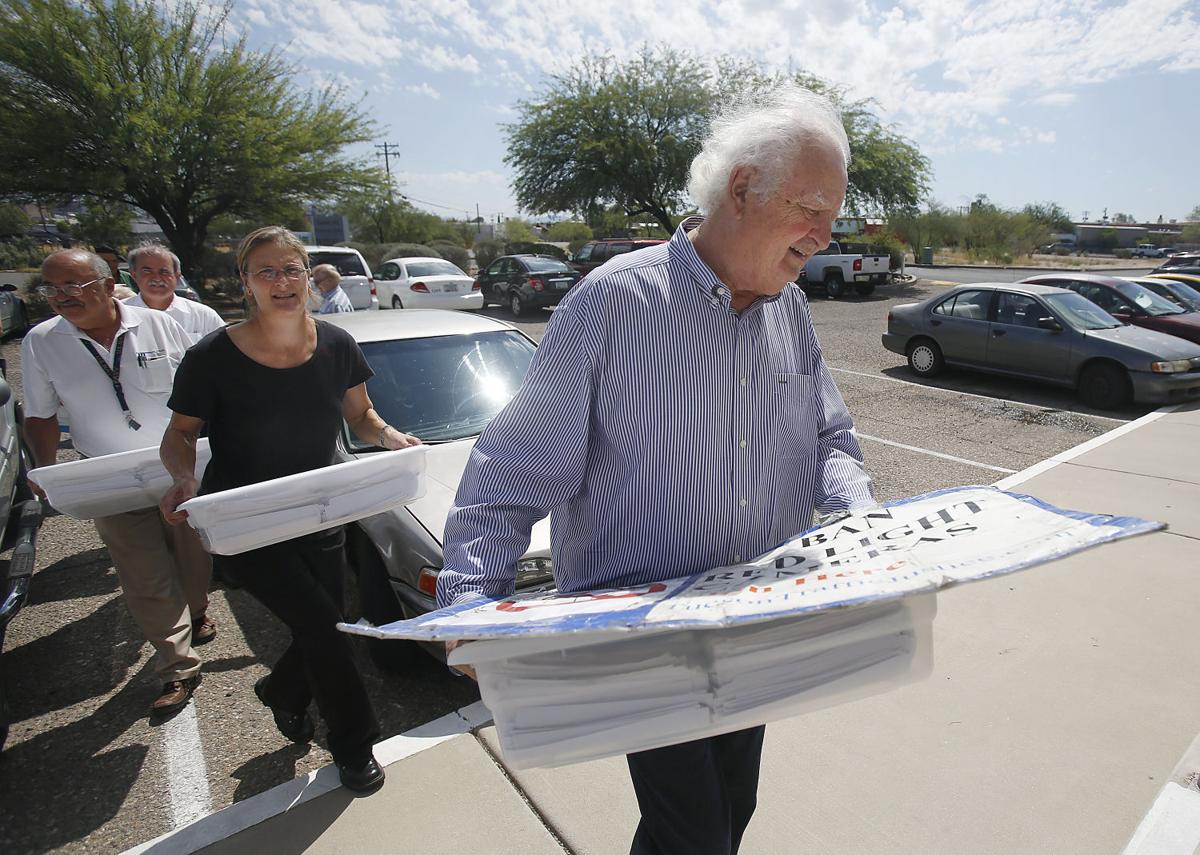If you’ve never been cited by one of Tucson’s red-light cameras, then you’ll probably share my dilemma when you look at next month’s general-election ballot.
That’s because you’re being asked to ban these cameras, which make common sense as a tool for stopping or catching red-light runners. Anyone who drives around town knows the feeling of apprehension you get when you see a camera pointing at an intersection: You’re more careful. The police say they have cut accidents dramatically.
The problem is the camera system operated unfairly for years, much more so in the first few years after the program began in 2007, while setting up a bad financial incentive to issue ever more tickets. And there’s reason to doubt that if we allow the cameras to keep operating, the city will fix the problems that still exist.
So, do we get rid of a tool that still has potential, or keep it and hope for changes that are unlikely to occur? That’s the conundrum you start with when you think about whether to ban these cameras, eight of which operate at major intersections around Tucson.
Then you can consider motivations. Whether you’ve ever been cited by one of these cameras seems to make a big difference in how you perceive them. In fact, one 2009 citation is the reason we’re considering a ban at all.
John Kromko is the Tucson gadfly and former legislator who is spearheading this year’s ballot issue. He was cited in March that year for running a red light when taking a left turn from southbound Oracle Road onto eastbound River Road.
“I was at Oracle and River, trying to turn left,” Kromko told me Tuesday. “The car in front of me stopped. So there I was. I got flashed. I went to court and told the judge I didn’t intend to break the law.”
It didn’t matter. He ended up paying about $300 in fines and fees, plus another $100 to go to traffic school. If it weren’t so expensive, he said, he wouldn’t have bothered pursuing the issue.
Sounds unfair, right? Well yes, but you have to wonder whether Kromko’s annoyance wasn’t turned into action by this fact: It was Kromko’s eighth traffic citation in Tucson in the previous 10 years. Go back 11 years, and it was his ninth.
Since that 2009 red-light incident, he’s had another two traffic violations, one in Tucson for not wearing a seatbelt and another in Marana for speeding at between 16 and 20 mph over the limit. Overall, Kromko’s 11 citations since 1998 average out to a rate of one every year and a half or so. Most were for speeding.
By comparison, I’m a pretty average driver — not aggressive but sometimes a speeder or distracted — and I’ve had three moving violations over that same period, the last one in 2005.
When I asked if the buildup of all those tickets is what really motivated Kromko, he told me “No, not at all.”
“It’s because it’s so unfair,” he said. “That’s why you get all these people to sign petitions. If it were fair and not a scam, you couldn’t get people to work on it or sign it.”
It’s true that the group he formed, Tucson Traffic Justice, has been at seemingly every event over the last couple of years and collected more than 40,000 signatures, an impressive number, to put the issue on the ballot. But you also have to wonder how many people simply don’t like the threat of being caught breaking the law.
Kromko and allies such as Lee Strubbe and Mark Spear argue that the definition of the intersection — by state law, you enter the intersection at the curb line, not the crosswalk — leads to citations where no real violation occurred. They also say lengthening the yellow light more could improve safety while reducing citations.
The city has made some changes that have improved the fairness of the system — lengthening the yellow light by a half-second, for example. But otherwise their requests have largely failed. Why?
“The answer is you can’t because then the scam won’t work,” Kromko said. “The purpose is to give tickets.”
But if you buy that presumption — that the purpose of the whole red-light camera system is not to improve safety but rather to make money — then you have to grapple with another question: Why would the conspirators allow the conspiracy to fall apart at the voting booth rather than making some simple fixes that would cost them a little money rather than all of it?
Kromko, Strubbe and Spears all noted that in the vast majority of the 30-plus cities where red-light cameras have come up for a vote, they’ve been banned. In other words, companies like American Traffic Solutions, the one that operates the cameras in Tucson, end up losing their contract.
Council members Steve Kozachik and Paul Cunningham have both pushed for changes to the system to make it more fair. Kozachik is unsatisfied and thinks the city should have forced the company to issue tickets only if the driver has not first passed the crosswalk, or “stop line,” before the light turns red and the driver nevertheless keeps going. He supports the ban, he said, because the city hasn’t made the fixes it should.
Cunningham, who received several red-light tickets before being elected to the council, is happy with the fixes the city has made. But he still thinks the system sets up a bad financial incentive to make issuing tickets the goal, not reducing accidents. He too supports the ban.
Here’s my imperfect way of resolving the dilemma. As a person who has somehow avoided red-light camera tickets all these years despite my weaknesses as a driver, I’m going to oppose the ban. I think the cameras are a worthy tool whose problems can be fixed, even if the council has shown little interest in fixing them.
If we vote to preserve the cameras, it’s up to us to make them do it.







